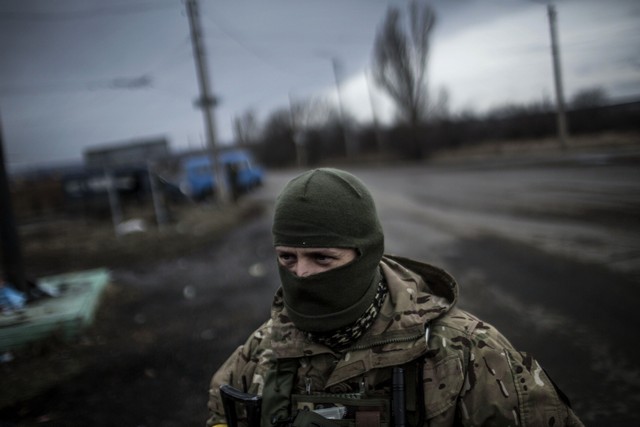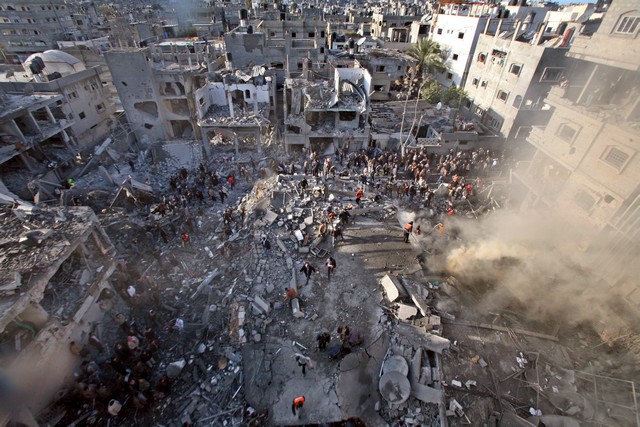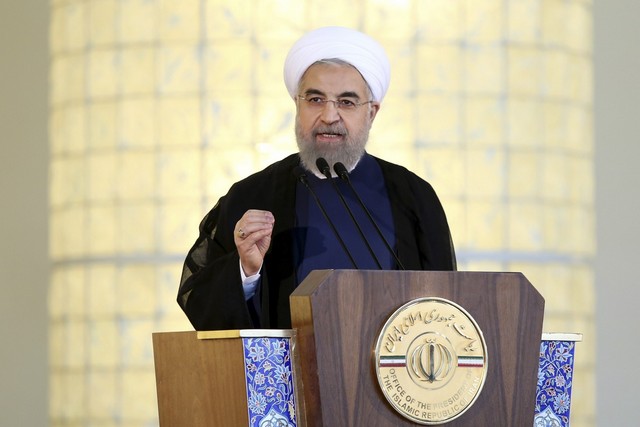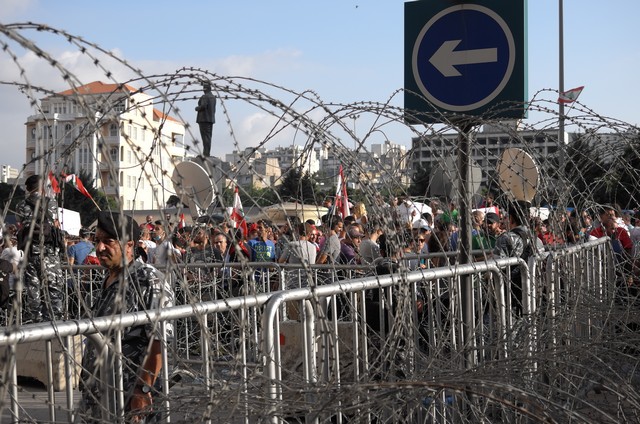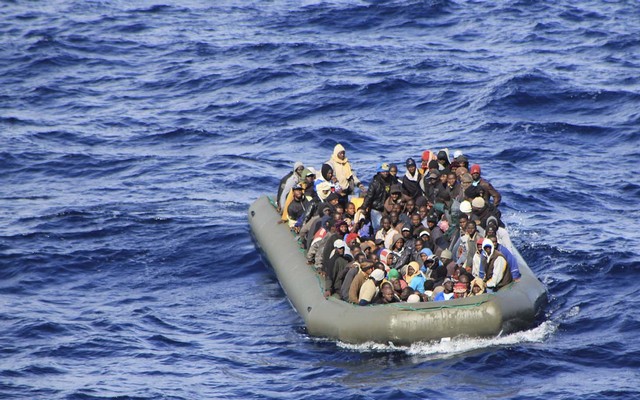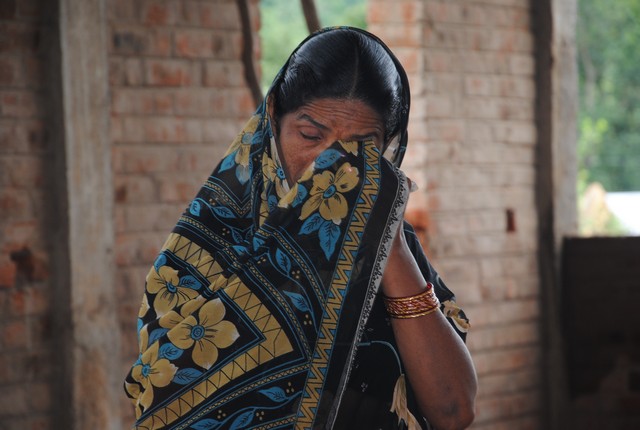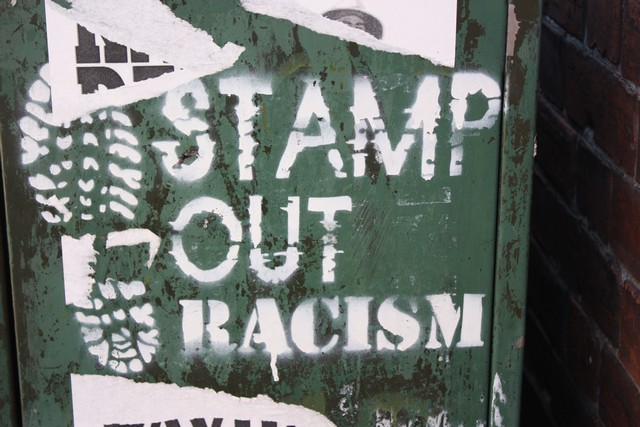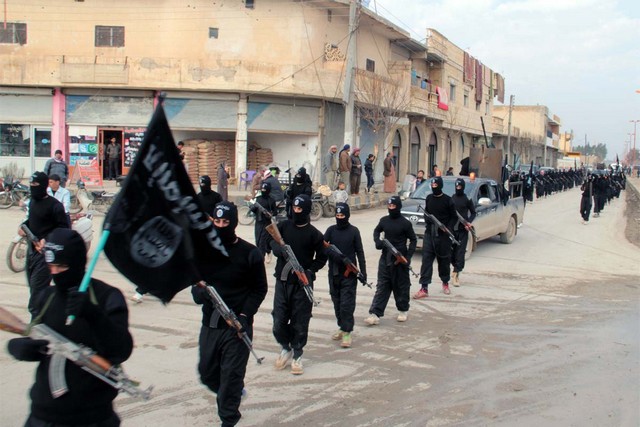By Evan Jones
By the worst means, the worst. For mine own good,
All causes shall give way: I am in blood
Stepped in so far, that, should I wade no more,
Returning were as tedious as go o’er.
Macbeth
August 28, 2015 “Information Clearing House” – Jeremy Corbyn is a longtime British Labour MP, hitherto little known outside Britain. Following the resignation of Labour leader Ed Miliband, Corbyn is one of four MPs who have nominated in the leadership contest, currently subject to ballot amongst Party members and supporters until 10 September.
Corbyn has been subject to a tsunami of criticism and abuse since his nomination, providing abundant evidence on the odious character of the current British political establishment and on the farce that is curiously labeled the democratic process.
Moreover, Corbyn, supporter of the Palestinian cause, has experienced full guns blazing from official British Jewry. On 12 August, the Jewish Chronicle broadsided with ‘The key questions that Jeremy Corbyn must answer’. With the emphasis on ‘must’.
Soon after, Jewish Labour MP Ivan Lewis becomes ‘the first senior Labour politician to attack Corbyn’s credentials on anti-Semitism’. And there will be more to come. How could anyone who finds Israel’s actions unacceptable imagine that they had the right to become leader of a major British political Party?
* * *
The treatment of Corbyn by the British Zionist mafia is not novel but redolent of the behavior of the British Zionist machine since its inception. Some insight into this machine can be had from a forgotten book, which a correspondent has alerted me to. The book is Publish It Not: The Middle East Cover-Up, written by Michael Adams and Christopher Mayhew, published in 1975 (Longman).
Adams (died 2005) was a journalist, Mayhew (died 1997) a Labour MP (later a Liberal) and broadcaster. Both came to be critics of Israel from a position of innocence, product of firsthand experience in their professional capacities. The hostility that they and other critics of Israel experienced on British soil led them to write the book.
The authors draw comfort from Nahum Goldmann, then President of the World Jewish Congress, reported (Jewish Chronicle, 7 June 1974) as claiming:
“… by blindly supporting the mistaken course of Israeli policy and by telling the Israelis only what they wanted to hear, Diaspora Jews had done Israel a disservice.”
Ill-informed (Adams was teaching in cut-off Finland in the late 1940s) and inexperienced, Adams found himself hired as Middle East correspondent for the Manchester Guardian in 1956. He was to remain employed until 1962, but continued to be published there until 1968. With respect to Israel:
“What I saw, in brief, was the fact of injustice; of an injustice which, it seemed, had been knowingly committed and was still being deliberately prolonged; an injustice – worst shock of all – which could be directly traced to a decision taken by a British government. I am speaking, of course, of the injustice done to the Palestinians …”
Adams notes that he could have accepted the past as spilt milk, but for two factors.
“The first of these was the realisation that the world’s ignorance of what had happened and was still happening in Palestine was not accidental: that there were plenty of people about whose primary concern it was to distort and suppress the truth about Palestine without bothering their heads with any concerns about freedom of speech. And the second factor … was the Suez crisis, which it became my duty to observe and report for The Manchester Guardian. It was a decisive experience.”
Then came the Israeli takeover of what was to become the ‘occupied territories’ following the Six Day War of June 1967. For Adams:
“There was a kind of Watergate in action … to protect those who made it their business to defend Israel and to subject to an insidious form of discrimination those who sought to expose the true aims of Israeli policy. Such non-conformists were subtly made aware that their jobs might be at risk, their books unpublishable, their preferment out of the question, their pubic reputations vulnerable, if they did not renounce the heresy of anti-Zionism. And for the most part, the merest flourish of such secret weapons was enough to reduce them to silence.”
The handful of dissenters learned that:
“… the imbalance of public opinion, in this deeply contentious area of foreign politics, was deliberately contrived and painstakingly maintained; and that those who were intent on maintaining it were not above resorting to some very dirty tricks against those who tried, as we were trying, to disturb it. I was to learn this lesson myself the hard way …”
In 1967, Adams, Mayhew and others formed the Council for the Advancement of Arab-British Understanding and the Labour Middle East Council. CAABU membership comprised well-credentialled professionals with Middle Eastern experience, but it was derided as an Arab propaganda front. The Labour Middle East Council was denied affiliation with the Labour Party. Mayhew notes:
“… we were startled by the vehemence with which … we were attacked and exposed to insult, and by the extraordinary anonymous letters which we became accustomed to receiving. In some respects these attacks were so bitter and unrestrained as to appear pathological.”
Christopher Mayhew’s first personal brush with Zionism was upon receipt of a letter dated 5 December 1946:
“We are determined this time to squash you British sons of a bitch and we declare war to the finish against the British. For every Jew you stinking British pigs kill in Palestine you will pay a thousandfold in fetid English blood. The [Lahome Herut Israel] has passed sentence of death on the British pig Mayhew. The execution will soon take place by silent and new means.”
At that time, letter bombs were received by several people. One such package was sent to an avowed anti-Zionist Roy Farran, which killed his brother.
Mayhew’s first professional exposure was as Undersecretary for Labour Foreign Secretary, Ernest Bevin. The Commons, 11 July 1948. It is 8 a.m., after an all night sitting. Mayhew is alone on the Government front bench. The Commons is empty. Save for:
“… behind me, wide awake, well-informed, passionate, articulate and aggressive, would be a group of twenty or thirty pro-Israeli Labour members. Most of them would be Jewish … and also Israel’s most brilliant non-Jewish supporter, Dick Crossman.”
At this ridiculous time, a debate on the recognition of Israel was initiated by a young Labour backbencher. Mayhew replied:
“Has my Honourable Friend ever heard that there is an Arab point of view? … The trouble with my Honourable Friend, as the whole of his speech shows, is that he is not sufficiently in touch with the Arab point of view on the Palestine problem.”
And thus it would be for Mayhew’s entire time in the Commons, harangued, abused, then marginalized. But the early target was Bevin himself, labelled successfully as an anti-Semite. Mayhew again:
“I remember clearly [Bevin’s] dislike of Zionist methods and tactics, and, indeed, of the Zionist philosophy itself. He was passionately and unshakably anti-Zionist. He held that Zionism was basically racialist, that it was inevitably wedded to violence and terror, that it demanded far more from the Arabs than they could or should be expected to accept peacefully, that its success would condemn the Middle East to decades of hatred and violence, and above all … that by turning the Arabs against Britain and the Western countries, it would open a highroad for Stalin into the Middle East. On all these points events proved him right …
“In 1947 and 1948 it was the political pressure on the Labour Cabinet from American Zionists, exerted through the United States government, which angered Bevin the most …. At that time, Britain was dependent on American goodwill for her economic survival [and Truman equally dependent on Zionist goodwill for his campaign funds]. As a consequence, the British government was subject to ruthless pressure from Washington to get the Arabs to accept the Zionists’ demands. It was a disgraceful abuse of power.”
By chance, Mayhew had to meet the US Ambassador, Lou Douglas, by himself. Douglas wanted British assent to admitting a hundred thousand Jewish refugees into Palestine immediately. Mayhew reiterated the government’s position – it was a prescription for war. Douglas then claimed that the President wanted it known that agreement on the intake would help him get the Marshall Aid appropriation through Congress.
“In other words, we must do as the Zionists wished – or starve. Bevin surrendered – he had to – but he was understandably bitter and angry. He felt it outrageous that the United States, which had no responsibility for law and order in Palestine (and no intention of permitting massive Jewish immigration into the United States), should, from very questionable motives, impose an impossibly burdensome and dangerous task on Britain.”
Mayhew’s first visit to the Middle East was in 1953 – as member of a Parliamentary delegation he went to a Palestinian refugee camp in Jordan. There he saw ‘… the refugee camps not merely as relics of a past war, but as seedbeds of future vengeance’.
Other priorities intervened, but in 1963 Mayhew was a member of an official Labour Party delegation which toured Middle Eastern countries. On that tour, the delegation met then Israeli Prime Minister Gold Meir and other Israeli leaders. He was disgusted by Meir’s mocking and patronizing attitude towards the Palestinians.
“I remembered now where I had heard it before: at parties given by British settlers in Kenya and Tanganyika before those countries gained their independence. It was the tone in which it would be explained to visitors like myself that the African was scatterbrained but essentially a ‘good chap’, loyal (meaning loyal to his white masters) but easily led astray by trouble makers (meaning those of his fellow-Africans who aspired to self-rule).”
Thus did Mayhew develop a commitment to the Palestinian cause. But Mayhew’s answering back to the Israelis had immediate consequences. When Harold Wilson, a zealous Zionist, formed government the next year in 1964, Mayhew was excluded from the Cabinet after the lobbying against him.
* * *
For Mayhew:
“The secret of the Zionists’ success has lain in the existence of a large, lively and influential Jewish community in Britain. [In the context of deliberations regarding the Balfour Declaration in 1917, s]upporters of Zionism, whether Jewish or non-Jewish …if they were not in positions of power themselves, they usually had easy access to those who were.”
Mayhew drew on Doreen Ingrams’ Palestine Papers 1917-1922, which highlights that the first drafts of the Balfour Declaration were written under the direction of Zionists (Lord Rothschild and Chaim Weizmann) on Balfour’s invitation. Weizmann had ready access to Balfour. Thus Weizmann to Balfour, 30 May 1918 (from Ingrams):
“The Arabs, who are superficially clever and quick-witted, worship one thing, and one thing only – power and success … The British authorities … knowing as they do the treacherous nature of the Arab, they have to watch carefully and constantly that nothing should happen which might give the Arabs the slightest grievance or ground of complaint. In other words, the Arabs have to be ‘nursed’ lest they should stab the army in the back. … So the English are ‘run’ by the Arabs.”
After the Balfour Declaration’s publication, the government established a special branch for Jewish propaganda in the Foreign office under a Zionist, Albert Hyamson, and a Zionist commission (led by Weizmann) was dispatched to Palestine to facilitate the Zionist agenda.
Mayhew notes the instructiveness of the diaries of Mrs Blanche Dugdale (Balfour’s niece), on ‘the intimacy of the Zionist lobby’s contracts with the Cabinet’, citing a September 1936 entry (p.32). Mayhew concludes:
“What is extraordinary about this extract – and many others in Mrs Dugdale’s revealing diaries – is that she is describing without apology (quite the contrary) a pattern of behaviour which would normally be considered scandalous, if not positively treasonable. A member of the British government was communicating Cabinet secrets to a private individual acting on behalf of a group of foreign nationals [etc] …”
Mayhew notes that the capture of the British Labour Party, even by comparison with the Liberals and Conservatives, has been a remarkable phenomenon.
“By tradition and principle the party was strongly opposed to territorial expansion, colonialism, racialism and military government; yet the Zionist lobby succeeded in committing it to a uniquely close friendship with a foreign government which [failed all these criteria].”
The Labour Party ‘welcomed Zionists most warmly to its ranks and gave the most consistent support to their aims’. Soon after Labour was elected in August 1929, riots broke out in Palestine, driven by the scale and character of Jewish immigration. A subsequent White Paper noted that Britain’s support for Jewish immigration was not formally unconditional. The lobby forced a retreat from Prime Minister MacDonald, following which Jewish immigration into Palestine escalated dramatically.
“In the 1930s and ‘40s the Zionists consolidated their grip on the Labour Party and came completely to control its policy on the Middle East.”
The Party’s National Executive Committee’s 1944 report proposed ‘Let the Arabs be encouraged to move out, as the Jews move in’, and that Jewish migration prospects might be enhanced by ‘extending the present Palestinian boundaries by agreement with Egypt, Syria or Transjordan’. Mayhew notes that the Labour Party thus ‘took on itself the role of a kind of Zionist fifth column’.
Then to the Attlee government. Professor Harold Laski, ardent Zionist, was chairman of the Party’s National Executive Committee during 1945-46, declaring that he was attempting to organize ‘an internal opposition to fight the Attlee-Bevin betrayal of the Jews’. Add the (much cited) Crossman-Strachey incident. Mayhew reproduces the fragment in Hugh Thomas’ biography of John Strachey. Strachey, Under-Secretary of State for Air and member of the government’s Defence Committee, gave Crossman tacit approval for the Haganah to engage in sabotage. Thus did Haganah blow up the bridges over the Jordan (June 1946?), cutting off the British army from its supply lines. As Mayhew notes:
“Such behaviour by supposedly responsible members of the Labour Party and Government would be inconceivable in any context other than that of Zionism.”
Mayhew neglects to add Thomas’ postscript:
“A few days later, the Foreign Office broke the Jewish Agency code. Crossman was for several days alarmed lest he and Strachey might be discovered.”
And on to the Wilson government, the Prime Minister’s contribution to the Zionist cause being unstinting. On 8 December 1972, the UN General Assembly re-affirmed the UN’s November 1967 Resolution 242 (demanding Israeli withdrawal from the Occupied Territories, respect of Palestinian rights, etc). Wilson, in Israel over Christmas, in turn reaffirmed his carte blanche support for Israel’s freedom of action.
As a Jewish newspaper reported on the 29th: ‘Tidings of comfort and joy were brought to Israel’s political leaders this week by Harold Wilson’. Mayhew’s contrary response was:
“Today it is widely recognised that the policies to whose support Mr Wilson committed himself and the British Labour Party were gravely mistaken and that they were the principal cause of the fresh outbreak of war in the Middle East in October 1973.”
The fiftieth anniversary of the affiliation of the organization Paole Zion to the Labour Party was held in September 1970. After the 1920 affiliation, Mayhew notes, ‘a steady stream of pro-Zionist questions began’, involving fraudulent propaganda that ‘greatly influenced generations of credulous Labour Party members’.
The 1970 dinner was presided over by the acting chairman of the Party, the Zionist Ian Mikardo. Mikardo attacked Ernest Bevin (an anti-Zionist and anti-Semite), the British Diplomatic Service, and the Arabs. Said Mikardo, Foreign Office officials were ‘public school boys who share with the Arabs a common tendency towards homosexuality, romanticism and enthusiasm for horses’.
Mayhew claims that the dinner probably marks the zenith of the Zionist influence. Yet the general account of Adams and Mayhew up to the time of the book’s publication highlights that nothing had changed within the Labour Party. Dissenters within the ranks were perennially howled down and abused by the Zionist chorus.
* * *
Adams and Mayhew note that the British media bore a heavy responsibility, through its partisanry and its silences, for the public’s impoverished understanding of the Middle East. Most British media Middle East correspondents were Jewish, and some outlets lazily employed Jewish Israeli residents who doubled as ‘reporters’.
In early 1968 Adams, in visiting the Middle East on invitation by the BBC, arranged with the Guardian that he would write some articles on the state of affairs in the occupied territories – then little known in Britain. Adams was appalled by what he found.
The Guardian published the initial articles, but its editor baulked at the last. It referred to the destruction of three villages (Imwas, Yalu and Beit Nuba) not far from Jerusalem, after the access road from Ramallah was cut, the rubble carted away and the remains ploughed over. Adams confirmed the details with the Israeli military. Not least because none of the rest of the media’s patsies had reported on the affair, the Guardian’s editor found Adams’ account unpalatable. That was the end of Adams’ 12-year relationship with the Guardian.
Some outlets were worse than others. The New Statesman was notable in its partisanry under ‘a succession of vehemently pro-Israeli editors (Kingsley Martin, Paul Johnson, Richard Crossman)’, until 1972; and The Economist under Alastair Burnet. Johnson was subsequently appointed by Harold Wilson to be a member of the 1974 Royal Commission on the Press.
The most influential of the ‘gentile Zionists’ in the early days was the Manchester Guardian. On Adams’ first visit to Jerusalem in 1956 he was surprised to have a distinguished Palestinian refer to his employer as ‘Ah, the Zionist paper’. Adams then discovered that C. P. Scott had ‘launched’ Chaim Weizmann into British political society, introducing Weizmann to Lloyd George and putting ‘the authority of The Manchester Guardian at the disposal of the cause of Zionism’. No doubt Jonathan Freedland, keeping the acrid flame alive, has a photo of Scott on his desk.
The BBC (both television and radio) was consistently partisan through these years. According to Mayhew, the pro-Israel bias was for the most part inbuilt and unconscious. Although management would perennially consciously cave in under pressure from the lobby.
To the media’s bias, the authors add disgust at the silence of the British churches on Israeli abuses, not least because they had representatives on the ground in Jerusalem. The authors lament, in particular, the long silence of the Church of England on the issue.
“The years of acquiescence in the Israeli fait accompli had cost the church any moral standing it might have had in the matter …”
* * *
Adams and Mayhew started Publish It Not in 1974. The text is written in hindsight following the October 1973 war. They note the relative military strength of the combatant Arab states, ‘surprising’, given the seeming invincibility of the Israeli military apparatus. They also note the atypical unity of the Arab states (with Saudi Arabia a late adherent), embodied in the oil embargo and price hike. The western media belatedly started to report Arab opinion.
From this environment the authors conclude:
“Israel’s capacity to survive without making far-reaching concessions, concessions which would severely modify the nature and potential of the Jewish state, seems very doubtful. So far, Israel has established herself, and expanded her territories, on the basis of her dominant military power. But since October 1973 the balance of power has shifted significantly against Israel and the shift seems likely to continue in the same direction.”
What a dramatically flawed prognosis! Still, they weren’t alone. They cite a contemporary, longtime journalist at The Times, (Jewish) David Spanier, 15 January 1974:
“All of a sudden it seems blindingly clear, not to all, but to many, who had somehow looked the other way, that the permanent relegation of large numbers of people as second-class citizens will bring the Zionist mission to an end and may threaten the state itself. According to some religious thinkers, far from the political arena, a policy based on occupation will ultimately corrupt the essential value of Judaism itself.”
And the aftermath? Some time ago, I unearthed a cache of Guardian Weeklys stretching over the years. Product of a hoarding mentality, their existence product of a pre-internet compulsory subscription by an antipodean colonial seeking non-provincial media exposure.
For example, late 2003, with respect to Israel. Well what do you know? Some representative headlines.
‘100,000 [Israelis remembering Yitzhak Rabin] gathered last weekend under banners denouncing occupation and demanding peace
‘A European Commission opinion poll that claims 60% of Europeans see Israel as the greatest threat to world peace has drawn outraged denunciations of anti-semitism
‘Israeli planes kill 10 people in wave of attacks on Gaza
‘The Israeli military has ordered thousands of Palestinians living near the steel and concrete ‘security fence’ that cuts through the West Bank to obtain special permits to live in their own homes
‘Rafah braced for more misery: Eight Palestinians dead and 1,500 homeless – but Israeli raids go on
‘Iran threat must be eliminated – US hawk
‘3,000 dead – yet peace remains elusive; three years of intifada
‘Bitter harvest in West Bank’s olive groves: Jewish settlers destroy fruit of centuries of toil to force out Palestinian villagers
‘Deep anxiety unsettles the Jewish community in France
Add countless letters to the Editor fueled by passion and disgust, emanating from both anti-Zionist and Zionist camps. You couldn’t make it up. Plus ça change!
That interpretative failure of Adams and Mayhew provides a significant lesson. One is forced to ask – why did their prediction so dramatically miss the trend of ensuing decades? Literally, many things have changed. But plus c’est la même chose. The more things have stayed the same. The dialectical evolution of thrust and counter thrust that produced a form of status quo has been inadequately documented and analyzed.
In culminating with the status quo, there has been non-stop turbulence. What? We have witnessed the annexation of the Golan, two invasions of Lebanon, the repression of two intifadas, the creeping appropriations of East Jerusalem and the West Bank, the perennial ravaging of Gaza, the perennial murder of Palestinians and long term incarceration of Palestinians, the wilful repulsion of Gaza-bound maritime traffic, etc. The entrenchment of an apartheid state.
Israel has never fulfilled the conditions on which it was admitted into UN membership; it has ignored myriad UN resolutions, it has attacked UN infrastructure and personnel, and has just sent a racist extremist to the UN as ambassador. Israel retains privileged access to the crucial markets of the European Union. And, of course, this state with the reputed strength of Solomon sucks voraciously on the American taxpayer teat.
Israel continues to operate with complete impunity for its crimes.
* * *
Serendipitously, a second edition of Publish It Not was published in 2006 (Signal Books). It is a desirable read, both for the insight, courage, commitment yet sobriety of the prose of Michael Adams and Christopher Mayhew, but also for the latter day complements. Jeremy Corbyn might profitably read it (for his sanity), if he has not already done so. The 2006 edition has three additions.
One. There is a 2005 sympathetic review by Shelby Tucker of John Rose’s 2004 The Myths of Zionism and of Jacqueline Rose’s 2005 The Question of Zion. Notes Tucker:
“It was only when I read Publish It Not … that I learned just how pervasive Zionist control of our media was and recognized the extent and effectiveness of its indoctrinating power. That was the moment that I changed my allegiance in this cause. It was the simple response of a man who awakened to the fact that he had been lied to.”
The Times Literary Supplement commissioned Tucker’s review, and the copy editor approved it. But the TLS editor pulled the plug (‘He doesn’t feel that the review is right for [us]’), instead publishing a dishonest Zionist review of the books. Exhibit A for the Adams/Mayhew narrative.
Two. There is an extended ‘testimony’ by Marion Woolfson of her experience as an honest reporter of Middle Eastern affairs. Woolfson’s experience is mentioned briefly by Mayhew in the 1975 text. But Woolfson’s account is harrowing.
Jewish, Woolfson moves to London following her husband’s death and visits her in-laws. She was informed over dinner that then Labour MP Christopher Mayhew was ‘evil, murderous, a Nazi and a terrible Jew-hater’. It was all downhill from then on.
Her media reports and letters lead to her being subject to (literally) non-stop harassment, brutalization, physical attacks. Endless letters and telephone calls calling her ‘a treacherous lying bitch’, receiving money from or sleeping with ‘filthy Arabs’, etc. She changes her number, made silent, but that number is readily made available to the harassers (!). The nature of the beast (in lieu of a local chapter of the vicious Jewish Defense League) deserves reproduction:
“Each evening … salesmen from a number of double-glazing firms would call and then throughout the night there would be a procession of taxis ‘to take me to the airport’. … Then lorries began arriving from early morning, laden with cement mixers, sand or gravel so that the narrow mews in which I lived was totally jammed and the lorry drivers … would be cursing. … Eventually I had to move out of my house until the harassment stopped. Not long after my return, I found a large swastika painted on my front gate. …
“Then, a huge rock was thrown through my large, plate-glass dining-room window with such force that it broke the wall opposite. … (There was a similar incident last year when the missile crashed through my bedroom window, at my present home, at 2 a.m. I tell myself that this was merely the action of a local hooligan.) Soon afterwards, a man called at my house. … A few days later … a man, who … had what looked like a metal cosh in his hand hit me on the forehead … [etc.]”
She is shut out of the media, prevented from plying her profession. She is ex-communicated from the bulk of the Jewish community. At least she should take heart from the experience of the valiant Spinoza.
Three. There is an extended foreword by longtime BBC journalist Tim Llewellyn. It is addressed specifically to the mis-judgment of Adams and Mayhew.
Llewellyn notes the changes. The Labour MP Zionist bully boys have gone. The public is far better informed, courtesy of considerable critical scholarly literature and daily internet exposés. The lies have been exposed as lies. The media acquired slightly more balance.
But the Parliamentary bully boys have been replaced by the trans-party ‘Friends of Israel’ cabals. Thus, for example, in September 2011, the Tory-Liberal Government moved to facilitate ready access of Israeli war criminals to British soil. And the public, no matter how better-informed, is ignored (witness the zero impact of the anti-Iraq invasion demonstrations). Since 2000, the BBC has backtracked, following 9/11, the second intifada, and Blair Labour’s relentless pressure for conformity. Add the organically pro-Israel Murdoch media (including The Times since 1981) and the Daily Telegraph.
More, the Zionist lobby is now better resourced, as powerful as ever. So-called representative national Jewish organizations, as in other countries, are first and foremost, pro-Israel lobby groups (have I missed a low-lying exception?). Claims Llewellyn:
“Since 1975, when the authors went into print, the official and institutional ranks of the Zionists in Britain have mounted and continue to mount campaigns of disinformation that dwarf their efforts of thirty and forty years ago. … the work goes on … not just in selling the Israeli package to the ordinary British people but also in changing the nature of British Jews’ perception of themselves and their relationship to Israel. Or, to put it another way, Israel’s alleged centrality to the life of a British Jew.”
As above, David Spanier was concerned that ‘a policy based on occupation will ultimately corrupt the essential value of Judaism itself’. Quite. The culturally unifying role of Judaism, in many families reduced to the conventionalized ritual of the Judaic calendar, has been displaced by the culturally unifying role of Israel. If less spiritual, a decidedly more muscular apparatus to be proud of (save for the hostility to this ersatz substitution by some Orthodox communities). And this even given that the majority of Jewry would never contemplate living there.
But the more does Israel perpetrate unsavory actions, the more does Israel need an effective propaganda machine. Llewelyn again, noting that the Americans arrived after 2000 to advise the British Israel Communications and Research Centre:
“The message was clear: be aggressive; pester and menace the media and the politicians in all their forms; go to court; never let up; let no adverse image or mention of Israel go unchallenged, however true, however perceived. In a word, the only story is our story: make sure everyone knows that.
“If Adams and Mayhew had been appalled at the Zionist intrusions they suffered in the 1950s, 1960s and 1970s, they would have been paralysed by the sheer aggression of the Zionist movement here, especially concerning the media after 2000 and the success it achieved with its tactics …”
Thus the Zionist messiah, political version, is now made flesh. But in its nurturing of human nature at its worst, it requires a most unholy propaganda and lobbying edifice to keep its yet incomplete pursuit of purity of spirit on track. The exercise, with its inevitable criminality, is fundamentally dependent upon the ‘dual loyalty’ (singular?) of the so-called Diaspora. And woe to the ‘self-hating’ Jews who dissent from the rule, saying ‘not in my name’.
In short, tribalism trumps reason, humanity and moral integrity. Can the evidence allow any other inference? Reason, humanity and moral integrity aside, what a brilliant success story.
* * *
Of the propaganda armory, the very rusty ‘anti-Semitism’ sword is still being brandished, and still to good effect. Here is Adams and Mayhew on the long silence of the churches:
“Nor was the situation any better in other western countries: the damaging accusation of anti-Semitism was held like a sword over the head of anyone rash enough to criticise Israel, from a moral or a spiritual standpoint, as from a political one.”
And Llewellyn on the BBC as highly-exposed public broadcaster:
“In institutional broadcasting there is a climate of fear. Executives do not like to be accused of anti-Semitism, which is the ready-to-hand smear the Zionists and their friends have available if they think Israel is receiving a bad press.”
It’s staggering to think that this canard still carries leverage, not least because it shits on the substantive anti-Semitism that has been central to the Jewish experience for centuries.
Thus the pro-Palestinian Jeremy Corbyn is naturally a target of this trusty weapon. Frankly, I don’t like his chances. If he manages to transcend the slur and its baggage, it will be a new day.
On the subject of this crime by Zionism against Jewry itself, one is perennially drawn to the stance of the philosopher Michael Neumann, outlined in Cockburn and St. Clair’s 2003 The Politics of Anti-Semitism. Neumann notes that definitional inflation cheapens the currency. (One might add that, as in Gresham’s Law in economics, ‘bad money drives out good’.)
With respect to the growth of Arab anti-Semitism, Neumann notes:
“… its chief cause is not anti-Semitic propaganda but the decades’ old (sic), systematic and unrelenting efforts of Israel to implicate all Jews in its crimes.”
Is opposition to the settlements (the Jews’ claimed historic right to Eretz Israel?) anti-Semitic? Claims Neumann:
“… since we are obliged to oppose the settlements, we are obliged to be anti-Semitic. Through definitional inflation, some form of anti-Semitism becomes morally obligatory.
“… anti-Zionism is a moral obligation, so, if anti-Zionism is anti-Semitism, anti-Semitism is a moral obligation.”
The Zionist armory, if one can be excused a mixed metaphor, has no clothes. It is long overdue that Zionism and its incarnation in the state of Israel be subject to the supposedly universal standards of reason, humanity and moral integrity.
Evan Jones is a retired political economist from the University of Sydney.

